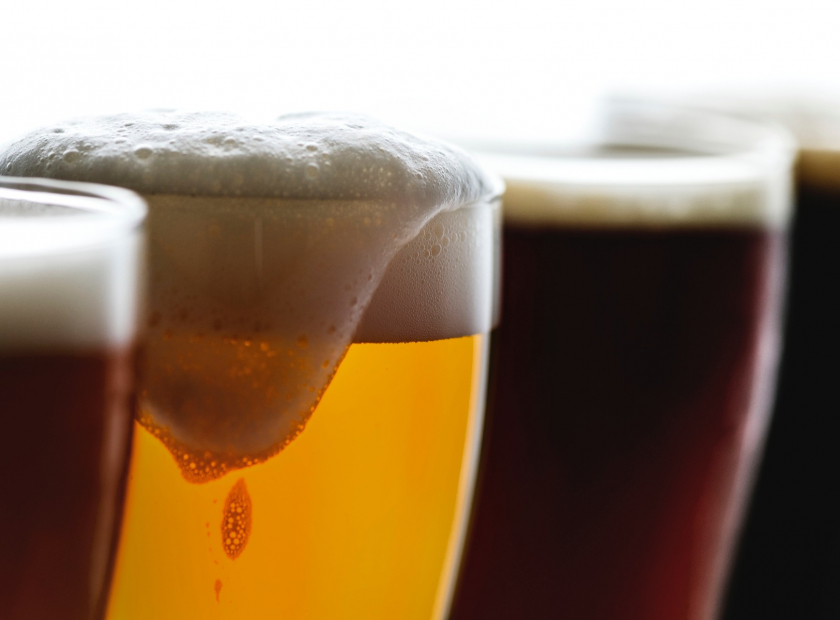A new year has just begun, the perfect time for a fresh start and some lifestyle changes. But rather than limiting these improvements to January, why not extend them to the whole year round and really experience the health benefits from doing so. In particular, giving up alcohol can be a tricky concept for us to get our heads around, as a whole, Britain is known for being one of the booziest cultures of today. However, with many people recognising their relationship with alcohol is often down to habit or even boredom, maybe more of us can take on the challenge. The question is often raised that whether cutting out alcohol for a month is beneficial to us, well, in this blog we’re going to explore just that.Although the initial concept of an alcohol-free month sounds like a great idea to many, after all, it will give our bodies the detox they likely need after the festive period, it is important to consider if it is realistic and whether the health benefits you gain in the month you have off, are going to stick around. One of the main flaws that are brought to our attention of Dry January is that we all do our best to avoid alcohol for a month but following this, we revert back to our usual bad drinking habits and continue doing damage to ourselves. Research has suggested that it takes 21 days for a behaviour to turn into a habit. It may be a good idea to consider the idea of cutting down on your alcohol intake and avoid drinking for the sake of it. If you can keep this up for the whole month, you are more likely to be able to continue this behaviour and hold onto those health benefits for longer. But what are the health benefits of drinking little to no alcohol? Short-term benefits There are a number of short-term benefits that you will experience from avoiding alcohol, some of which you may experience if you are taking part in Dry January. Sleeping better is a very common short-term health benefit that many people experience. Regular drinking can affect the quality of your sleep and often can make you feel tired and sluggish. Even though alcohol may see us drop off to sleep quicker, the quality of sleep is slim thanks to the restlessness alcohol can cause. Binning the booze could give you a boost in energy levels and give you the perfect night sleep. Another benefit you may find is an improved, more healthy look! Alcohol is known to cause dehydration, but that’s to your skin too, which means saying no to the drink will leave your skin thanking you. Depending on the amount and regularity of your drinking habits, you could also experience some weight loss during the period that you are not drinking. Long-term benefits If you are interested in cutting down on the booze as a more permanent arrangement, there are a variety of health benefits that you will gain from doing so. One of them is avoiding a very dangerous fatty liver, drinking little to no alcohol will decrease your risk of getting liver disease as well as lowering your risk of cancers such as breast and mouth cancer. In fact, there is a huge range of serious illnesses linked to alcohol from a stroke to heart disease and more. Cutting out the drink will reduce your risk of suffering from serious illnesses such as these. It’s also well known that alcohol is a depressant, although, at the time of being under the influence of alcohol, the majority of people will have the opposite feeling, however, coming out of your alcohol-infused state usually causes a crash leaving you feeling pretty down. The list of health benefits from drinking little to no alcohol really does go on. So now we know the type of health benefits you can experience, can it be done? From a medical point of view, cutting out alcohol has little downsides, however, the way in which you do so is the key to whether you are likely to maintain it. So many of us jump on the Dry January bandwagon and often do not stick to it or simply revert back to our usual bad habits the second the clock strikes 12 on the 1st of February! Which means all of your hard work and improvements made will be out of the window just as quickly as you began. If you are seriously considering making some long-term changes and improvement to your drinking habits, then starting small could be what you need. As we discussed, refusing those drinks that you don’t particularly want but feel as though you should have is a great place to start. Many of those who are working full time in the week are counting down the days until Friday night when the ritual of a boozy weekend begins. This is a social and cultural issue in Britain and will take some serious work to change this habit of a lifetime. However, setting yourself realistic goals to achieve is likely to be the difference between those that make the change for good and those that stumble at the first hurdle.

January 02, 2019
You may also like
Check out similar articles

24th October 2023
Your Guide to the Best Flu Treatment...

23rd October 2023
Unlocking Health and Convenience: Your...

23rd October 2023
Finding Effective Pain Relief: A Guide...

22nd September 2023
Managing Gout Effectively: Your Guide...

21st September 2023
Nail Fungus Treatment Online: Causes,...

14th August 2023
